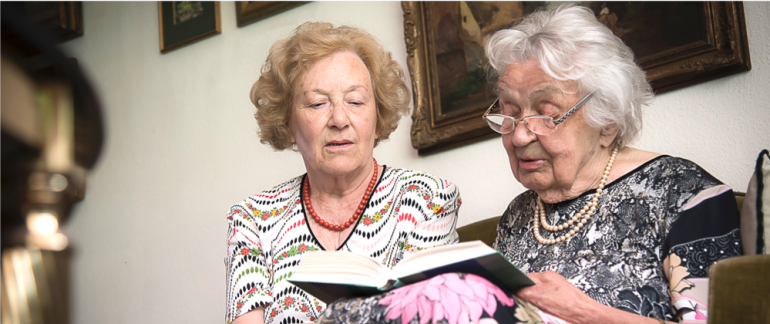
Switzerland has become one of the countries with the highest life expectancy in the world, with scientific estimates predicting that one in two children born after the year 2000 will celebrate their 100th birthday. However, little is known about the lives of the country's 1,800 or so centenarians (500 of whom live in French-speaking Switzerland). To fill this gap, the first national study on centenarians, SWISS100, is currently underway. Directed by the University of Lausanne, SWISS100 is being conducted in the cantons of Vaud, Geneva, Basel-Stadt, Bern, Zurich and Ticino.
An initial survey delayed by COVID
By chance, the SWISS100 study began during the pandemic. The first interviews were conducted by telephone with centenarians and their families throughout Switzerland, representing 171 centenarians in 22 cantons. This preliminary survey revealed the following:
- The average age of the participants was 102 years, with a range of ages from 100 to 110 years.
- Consistent with the higher survival rates for women, 75% were women and 25% were men.
- Most of them had received a basic education and had completed an apprenticeship.
- As for place of residence, 40% lived in private homes and 60% in institutions.
- 75% were widowed, three quarters of the centenarians had children and were fairly well integrated socially.
- 70% of the centenarians reported health restrictions but considered their health as good. It is not clear to what extent these results were influenced by the COVID-19 experiment.
Since autumn 2022, a second, more comprehensive data collection is taking place through personal interviews with 240 centenarians and their families at their place of residence. These interviews will capture the richness of the participants' unique experiences. Results are expected in 2025.

